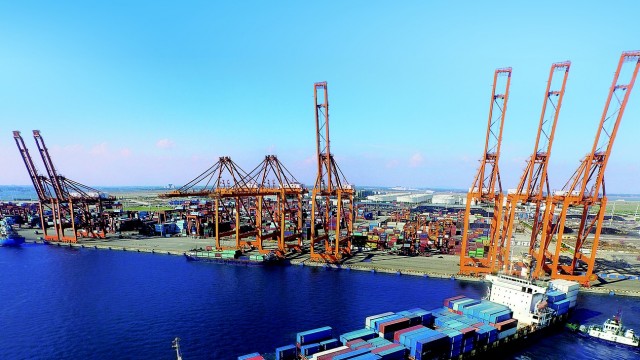As the use of liquefied natural gas (LNG)-fueled vessels increases globally, a new ISO standard aims to standardize LNG bunkering operations at the international level and ensure these vessels bunker in a safe and sustainable way.
LNG bunkering involves fuel being transferred from a given distribution source to an LNG-fueled ship. The process involves participation from stakeholders including from the ship-side, LNG supplier, ports, safety personnel, and administrations.
In recent years, ships and vessels fuelled by LNG have become larger, transit greater distances, and bunker in a greater number of ports in different countries. As a result, the number of parties involved in LNG bunkering is growing rapidly. Standardizing safety practices has become necessary to ensure that—regardless of where the bunkering takes place—there is a common set of globally understood requirements—from LNG provider to ship personnel.
ISO 20519, Ships and marine technology – Specification for bunkering of liquefied natural gas fueled vessels, will help operators select vessel fuel providers that meet defined safety and fuel quality standards.
ISO 20519:2017 was produced at the request of the International Maritime Organization, the European Commission, and the Baltic and International Maritime Council. The new standard contains requirements not covered by the IGC Code—the prevailing international code for the safe carriage by sea of liquefied gases in bulk. The standard includes the following items:
- Hardware: liquid and vapor transfer systems
- Operational procedures
- Requirement for the LNG provider to provide an LNG bunker delivery note
- Training and qualifications of personnel involved
- Requirements for LNG facilities to meet applicable ISO standards and local codes
Steve O’Malley, chair of technical committee ISO/TC 8, Ships and marine technology, subcommittee SC 11, Intermodal and short sea shipping, and convener of the working group that developed the standard said “The requirements of ISO 20519 can be incorporated as a management objective into existing management programs and provide verifiable compliance.”
O’Malley says this is important because “the requirement to comply with ISO standards is often incorporated into business contracts and may also be referenced by local regulations.”
As the use of LNG as a vessel fuel is relatively new, the standard will need to be updated periodically to incorporate lessons learned over time and as technology changes. To facilitate this, a group has been created to track LNG bunkering incidents and help identify when the standard should be updated.
Click here for more information on ISO 20519:2017.

